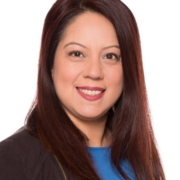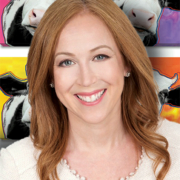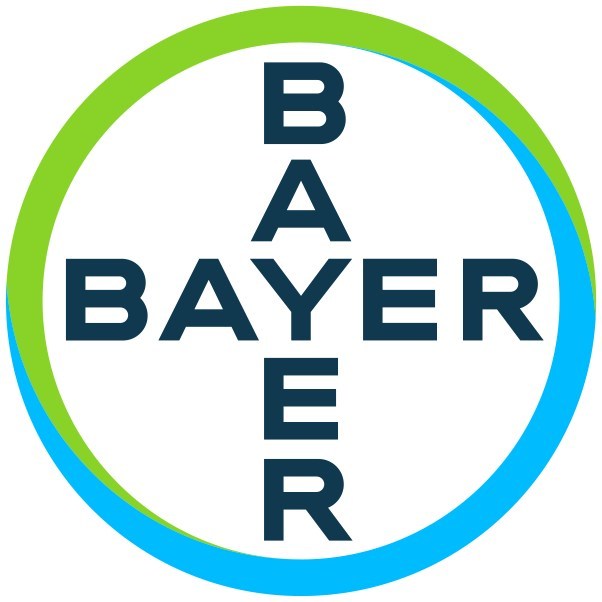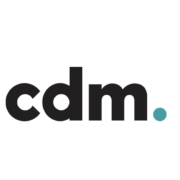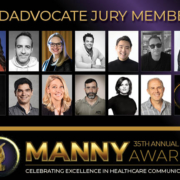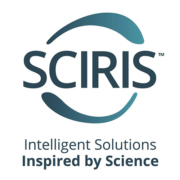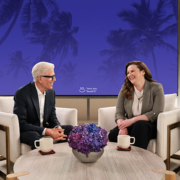The future of creators, innovators, and storytellers
The future of creators, innovators, and storytellers
By Maria Fontanazza | [email protected]
Just a few weeks ago (July 25) marked National Intern Day, and so many agencies took to social media to showcase those who could one day be rising stars in the field. From day-in-the-life clips that offered a light glimpse into #agencylife to the getting-to-know-our-summer-interns posts, the enthusiasm to learn and grow both professionally and personally is clear. But while the power of promise is strong, what does it take to cultivate the next generation of marketers in healthcare and pharma, and what does it take to survive as a next-gen marketer in this industry?
“Working in an agency, there can be long days, and there can be hard days,” says Kelly McNeil, senior VP, strategy at JPA Health. “I always sleep well at night knowing that even just a little bit of what we are doing is in some way, shape, or form helping to make the world a healthier place and helping people to live healthier lives. It’s really gratifying to know that the work you’re doing is going to have a real impact on someone who is living with a condition, needs a treatment, and wants to have a better life.” That statement is the crux of the motivation behind so many marketers working in this industry.
Med Ad News spoke with a sampling of professionals, from interns to entry-level to mid- and senior-level pharma marketers, to get a pulse on how agencies are fostering the development of interns and entry-level professionals, the challenges they face when entering the pharma marketing industry, and both words of advice from interns themselves as well as those who have risen in the field.
Med Ad News: How is your agency cultivating the next generation of healthcare marketers?
Adam Hopkins, senior VP, management supervisor, ConcentricLife: The thing I’m most impressed with regarding ConcentricLife’s intern program is its ability to convert talent. They’re not just taking an intern and turning them into an entry-level hire, they [make their way to the] leadership team. The people sitting over our biggest accounts in high-profile positions have come from the intern program, and that’s a testament to the investment – not just the financial investment – but also the time investment that has been put into that program.
Greg Lewis, managing partner/group President, Calcium+Company: At Calcium+Company, we are deeply committed to cultivating the next generation of healthcare marketers and innovators. A few ways we are fostering our talent:
- Internship Program (Pharm Fellows): We start early by offering college students the opportunity to participate in our annual internship program. This program gives students a real-world experience in healthcare advertising, providing them with meaningful responsibilities and a firsthand understanding of the industry.
- Ambassador Program: For those looking to further develop their skillsets, our ambassador program offers a more structured commitment in a given discipline. This program is designed to support individuals in honing their expertise and growing their careers within healthcare marketing.
- Comprehensive Training: We provide extensive training to all our team members, ensuring they have the latest knowledge and skills needed to excel in this ever-evolving field. This can be seen in the CAL U (internal training program) we offer staff.
- Commitment to MAHF Future Famers: We are proud supporters of the Medical Advertising Hall of Fame’s Future Famers program. This initiative is dedicated to recognizing and nurturing emerging talent in the healthcare marketing industry.
Through these programs, we aim to empower the next generation of healthcare marketers with the tools, knowledge, and importantly experiences they need to succeed.
Mariela Orochena, executive director, talent acquisition, IPG Health: We focus on providing students the opportunity to network with and learn the ins-and-outs of our work and culture by learning from employees across different departments and projects. This includes activities such as learning the background of our pro bono campaigns and participating in brainstorming sessions with our Design Thinking Strategy team. Our creative team also frequently participates in portfolio reviews with students across both design and non-design schools, to help future healthcare marketers hone their skills prior to entering the job market.
Scott Neverett, partner, director of human resources, Peregrine Market Access: Something vitally important to our success is our commitment to creativity—thinking outside the traditional lines. While the foundation and leadership teams are all seasoned and decorated industry veterans, we’re not afraid to pull new talent from places other agencies might overlook. So much of our work is about problem-solving, and the best problem-solvers are often the ones who are willing to think creatively.
Another example of how we are cultivating the next generation of healthcare marketers is our strong connection to the University of Southern California. John Guarino, president and managing partner at Peregrine Market Access is an adjunct professor for the MS in Healthcare Decision Analysis program at USC. Through their instruction, John and the Peregrine team provide real world content to the graduate students. Recent peregrine interns and current employees have graduated from this program.
Skylar Hanson, people experience generalist, AbelsonTaylor Group: To give an overview of the program [at AbelsonTaylor]: it’s essentially 10 weeks and based out of our Chicago office. Rising seniors and recent graduates get the chance to work alongside our team on client work. They also collaborate on an intern-led project and presentation, which is usually an example brief of what we would actually receive from a client, so they each get to bring the knowledge they’ve gained from working with their department team to form a makeshift brand. They attack the problem together and then present their solution to our entire senior leadership. It’s really great experience for them to see what projects would actually look like if they were to work full time at an agency.
By immersing them and giving them development opportunities, they get exposure to the teams they might not even directly be working with and they get to see how everything comes together.
We’ve hired 32% of our interns full time, which is great, but no matter where their career takes them, we want them to be set up for success.
Med Ad News: What qualities do you look for in interns and early-career professionals?
Caroline Allias, executive VP, client, services, RevHealth: An appetite to learn. I’m looking for ambition, I’m looking for hand raisers, I’m looking for folks with natural spirit of curiosity that I know will drive them to explore inside and outside of what they might be planning to do. Curiosity really fuels and inspires growth and development.
Amy Ryan, VP, associate creative director, RevHealth: I think that in this field specifically it’s going to be difficult to achieve great success if you are just waiting for opportunities and experiences to tap you on the shoulder. Take initiative and raise your hand, and say, ‘I want to be part of that experience.’
Hanson: When it comes to early career professionals, any experience with transferable skills is going to be relevant, even if it’s not specific to the healthcare industry or advertising – even college group projects in classes or [academic] clubs gives us a good sense of whether they would be able to complete a group project successfully and whether they’re going to be successful on our internal teams.
Our work environment for interns and full-time employees is hybrid. We’re looking for folks who can work independently without constant oversight – so their manager and their teams are always going to be there to answer questions – but we really love when someone just digs into the problem to search for solutions themselves and brings it to their team rather than immediately escalating it.
Kat Black, associate creative director, copy, ConcentricLife: I first and foremost look for people who have a combination of passion and talent. For creatives like me, passion and talent are what get you through the door. But for the copywriters I want on my team, it is a strong work ethic, detail oriented-ness, and most importantly, a drive to constantly learn and grow that gets you a seat at the table.
Stacey Gandler, Managing Director, PRotein, a division of Calcium+Company: There’s no one-size-fits-all when looking for a candidate starting off in their career. Some of the qualities that I believe make for a strong candidate are excellent writing, analytical and research skills, and organization. A candidate that demonstrates a curiosity about the bigger picture, and interest in learning about how healthcare communications fits into supporting patients and their communities—the grounding mission of our clients in the world of pharma and biotech—is one that we’d want to get to know.
We also like to see initiative in looking for a position, and that they’ve thought carefully about their decision. Our business is often entrepreneurial and the ability to work cooperatively and autonomously is important. For example, a candidate might show that they have researched our company and have some understanding of our mission or work and why it speaks to them.
My two favorite questions to ask are:
- What you are most proud of in your academic/work career so far?
- How did you find a way forward when a challenge arose in your life?
Their responses to these give us a sense of their problem-solving ability and tenacity.
Med Ad News: What are some of the challenges that professionals experience when entering this field?
Josh Righter, Associate Managing Director, Amino, a division of Calcium+Company: Most of us aren’t doctors—but to do this job, we need a working knowledge of medicine. This is a highly technical and complex field, and the stakes couldn’t be higher. We’re talking about treatments that fundamentally alter human lives. As marketers, we have a deep responsibility to represent these treatments fairly and accurately to all audiences, from doctors to patients to the community at large.
There’s just one problem. Unless you’re coming to this industry on the medical side, your coursework probably did not focus on the science behind how cancer starts or spreads, or its vulnerabilities, or all the different factors a doctor must weigh in treating it. So, what to do? Be curious. Keep your learning brain active. And be okay with feeling lost sometimes. There’s a reason why med school is an enormous undertaking—this stuff is complicated.
Mike Schrader, senior engagement strategist, ConcentricLife: The pharmaceutical industry comes with many unique rules, regulations, and terminology. While coming into this field with prior advertising experience is a plus, it really requires you to roll up your sleeves and dive into the work to truly understand what makes this area so challenging. With those challenges, comes some of the most rewarding and fulfilling work.
 Cassandra Trotta, associate analyst (former summer intern), RevHealth: One of the biggest challenges [I experienced ] was grasping medical terminology. New hires might feel out of their depth initially if they lack that scientific background, which I definitely did. But I was really lucky to be surrounded by such smart people and have a supportive medical strategy team who does that translation with us.
Cassandra Trotta, associate analyst (former summer intern), RevHealth: One of the biggest challenges [I experienced ] was grasping medical terminology. New hires might feel out of their depth initially if they lack that scientific background, which I definitely did. But I was really lucky to be surrounded by such smart people and have a supportive medical strategy team who does that translation with us.
Another challenge was keeping up with digital evolution like new platforms, new data analysis tools, and especially compliance considerations that are occurring frequently in the pharma industry. Staying on top of these changes requires continuous learning and adaptation.
Robert Quinby, account supervisor (and former RevHealth intern), RevHealth: I think the biggest challenge in this field is being able to balance the creative with the scientific. The work we do in pharma marketing not only has to have the general qualities of good marketing (engaging, strategic, differentiating, etc.) but it also needs to be scientifically precise. Finding this balance and thinking in this way can pose a challenge for a lot of people. Not to mention that for many brands, their entrance into the market often represents a new scientific development, or a new molecule altogether, and so there is no exact playbook for success.
Med Ad News: What characteristics help a professional have “staying power” in this industry?
Quinby: To stick around in this industry, you need to be adaptable, always eager to learn, and a great communicator. A genuine passion for health care goes a long way, and being resilient and good at solving problems helps you handle the ups and downs. It is also very important to find a company with a good work-life balance, otherwise burnout can set in quickly.
Neverett: You have to be quick on your feet, always ready to pivot, to dance to the tune of the changing tides, if you will. We occupy a unique space in a complex market. To survive and thrive in the center of such a tangled web of so many disparate stakeholders, you don’t merely have to stay current on emerging trends; you have to evolve with them. All the better if you can beat those trends to market and set them yourself.
The most important thing to remember when navigating all those moving parts is why you got into this industry in the first place: patient access. You can’t take your eyes off the prize. All the toe-tapping and trendsetting amounts to nothing if patients don’t have seamless access to safe, quality care.
McNeil: I think healthcare marketing is actually extra creative, because it requires out-of-the-box thinking. It requires solving a puzzle to figure out how are we going to keep this compelling and stand out, and be creative and interesting despite some of the guardrails. We shift gears a lot, going from thinking creatively to thinking scientifically and so being nimble to do that [is important]. I think it makes it more fun, too. That’s what makes healthcare marketing so exciting.
Lewis: To have “staying power” in the healthcare marketing industry, certain key characteristics are essential:
- Humility: It’s crucial to remain humble and open-minded. By listening to others with unique perspectives, you can continually learn and grow. This openness to new ideas and feedback helps one adapt and thrive in a constantly changing environment.
- Tenacity: Resilience is vital. In this industry, you’ll often encounter challenges and setbacks. Being tenacious means always finding a path around obstacles, persevering despite difficulties, and staying committed to your goals.
- Curiosity: Always ask why, to understand the deeper problem, meaning or solution.
- Generosity: Sharing your experiences, both successes and mistakes, is invaluable. By doing so, you help others learn and avoid the same pitfalls. This collaborative approach not only strengthens your team but also fosters a supportive and innovative work culture.
These characteristics—humility, tenacity, curiosity, and generosity are fundamental to building a successful and lasting career in healthcare marketing.
Hopkins: It’s an eagerness and willingness to do whatever is necessary to make magic happen for your clients. It’s also staying curious, and with that is humility and knowing that you don’t know everything. That’s why this is a team game – we rely on our cross-functional partners to help round out perspectives, and continuing to have that collaborative intent and spirit is really where the best work happens and creates the best cultures.
Black: Commitment to the craft and an entrepreneurial mindset are what give someone staying power in this industry. You have to keep pushing yourself to make even better work than before, and make sure to never lose sight of why you do what you do. You have to constantly be looking for ways to improve yourself and your work, continuing to elevate yourself and what you bring to the table as an individual.
Orochena: “Staying power” is rooted in an employee’s genuine curiosity in the future of health as well as proactivity and eagerness to learn. Junior level talent who seek our self-learning opportunities, raise their hands for new projects, and communicate their interests to their supervisor are the ones we see successfully growing their careers with us year after year.
Adaptability is another strong trait when it comes to “staying power.” The ability to be flexible and go with the flow when it comes to changing business needs and project timelines helps a professional stay on track with their growth on their team and in the overall network.
Med Ad News: How can professionals continue to hone their skills and expand their experience?
McNeil: I have Google alerts for every single condition that our agency follows so that we’re always understanding what’s happening, and I always encourage my team to do that if they’re working on certain clients. Get Google alerts on the condition and Google alerts around competitors; really throw yourself into this space, because acting as an insider, we can speak to people. [We should] pay attention to what others are doing so we learn from each other, especially in healthcare marketing.
Schrader: Hone your storytelling ability. While the industry is advancing through incredible means like AI, at our core we are using these tools to tell a story to our customer. If you can master that fundamental skill, all else is just a means to deliver in the most effective way
Neverett: So many factors are at play that determine the direction of market access. From a medical perspective, you have to stay up to date on the ever-evolving science. Every day, there’s a new drug, another giant leap in care quality, a new miracle that could change the lives of millions of patients. More than that, you have to know how to optimize and manage the utilization of those miracles. Understand how policy changes might affect that management strategy.
I think it’s also worth taking a page out of the medical playbook. Physicians and nurses are constantly required to bolster their capacity for care through CME courses. If we want to ensure we’re evolving with the sciences and our partners in implementing them, we should take every opportunity to continue our education, too.
Righter: We are living in a time when empathy is at a premium. So many of the channels our industry uses to communicate involve the delivery of non-personal messages through a screen. It’s all too easy to lose sight of the person at the end of the chain: the patient. “Patient”: even the word itself can feel dehumanizing, mechanical, cold.
We must challenge ourselves to break through the impersonal and create our communications with a genuine, honest spirit. To do so is to honor those most in need of empathy.
Learn about what it’s like to have these conditions. Get exposure to different points of view. Communicate with humanity, always.
Read more:
Stepping stones: perspectives from current and former interns
Advice to the next gen of marketing creatives: the power of failure
Jen Cully, senior VP, people and development for Greater Than One, on agency’s internship program
| Maria Fontanazza is director of content, PharmaLive and Med Ad News. |




